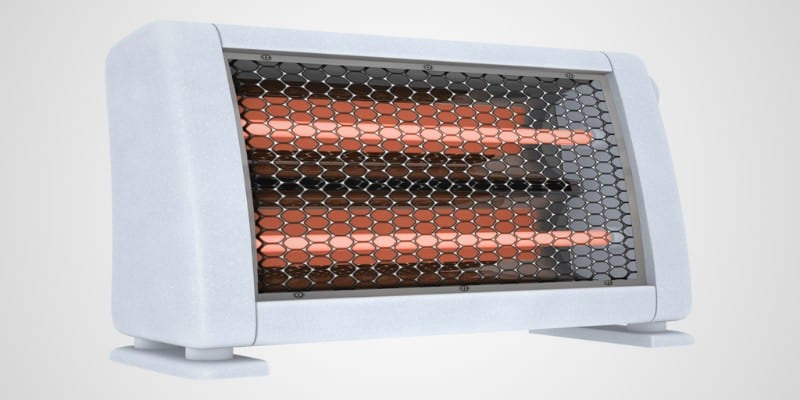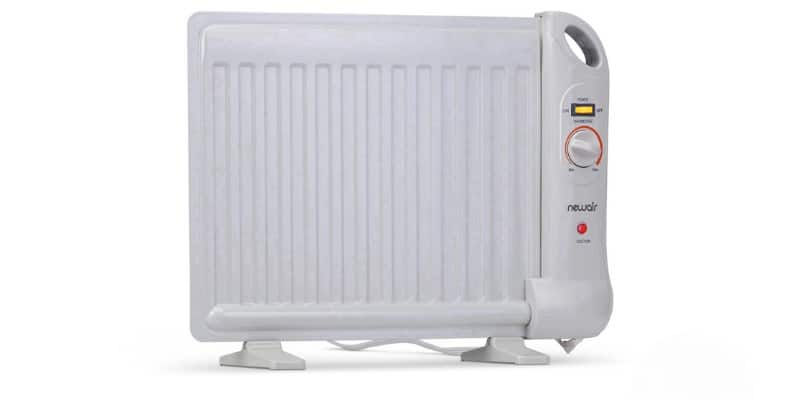As the chill of winter descends, having a space heater in your college dorm room can be a game-changer. Not only does it ensure you stay warm and comfortable, but it also creates a cozy atmosphere perfect for late-night study sessions or downtime. However, choosing the right space heater involves considering several factors such as safety, size, energy efficiency, and more.
Just as you would research different essay services to find one that fits your budget and quality requirements, you should also consider different types of space heaters, their features, and their safety ratings. Whether studying late into the night or hanging out in your dorm, a good space heater can make your space much more comfortable.
Understanding Different Types of Space Heaters
When it comes to space heaters, there are several types to choose from, each with its unique features and benefits. Here’s an overview of the four main types:
Convection Heaters
Convection heaters work by heating the air that circulates through the room. They use a heating element to generate heat, which is then transferred to the surrounding air. This process creates a cycle as the warm air rises and the cool air sinks, leading to a consistent temperature throughout the room. Convection heaters are ideal for providing steady, even heat over a longer period and are best suited for larger, enclosed spaces.
Radiant Heaters
Radiant heaters work differently. Instead of warming the air, they emit infrared radiation that directly heats the objects and people in their path. Because of this, radiant heaters provide heat almost instantly, making them a good choice for quickly warming up smaller areas or for personal use. However, they don’t distribute heat as evenly as convection heaters and their heat doesn’t last as long once turned off.
Ceramic Heaters

Ceramic heaters are a type of convection heater but with a twist. They use a ceramic heating element, allowing better control over the temperature. The ceramic elements do not get as hot as traditional heating elements, making them safer. They’re usually compact and lightweight, making them an excellent choice for small spaces like a desktop or bedside table.
Oil-Filled Heaters
Oil-filled heaters, also known as oil radiators, operate by heating oil within the unit, which radiates heat into the room. While these heaters take longer to warm up, they retain heat exceptionally well and provide a consistent source of warmth for a considerable time, even after being turned off. They’re also very quiet, making them a great option for bedrooms or study areas. However, they’re often larger and heavier than other heaters, which could be a consideration if space is a premium.
Key Factors to Consider
When choosing a space heater for your dorm room, it’s important to consider several key factors to ensure you get a safe, efficient, and appropriate unit for your needs.
Safety Features
Safety should always be a top priority when using any heating device. Look for these essential safety features:
- Auto shut-off: This feature automatically turns off the heater if it gets too hot, preventing overheating and potential fire hazards.
- Cool-touch surface: A heater with a cool-touch surface won’t become dangerously hot to the touch, even when operating at its highest setting. This reduces the risk of accidental burns.
- Tip-over protection: Heaters equipped with this feature will automatically shut off if tipped over, making them safer to use around pets or in busy areas where they might get knocked over.
Size and Portability
The size of the heater should fit comfortably within your living space. A compact heater is ideal for a small dorm room. Portability is also a significant factor. A lightweight design with a handle makes moving the heater from one place to another easy, providing warmth wherever you need it.
Energy Efficiency
To save on electricity bills, choosing an energy-efficient model is crucial. Look for heaters with an Eco mode or energy-saving mode, which automatically adjusts heat output to minimize energy use.
Noise Level
Consider the heater’s noise level if you plan to use it while studying or sleeping. Many heaters make minimal noise, but some models can be quite loud. Check the product specifications or reviews for information on noise levels.
Thermostat and Timer
A built-in thermostat allows you to set the desired temperature for your room, and the heater will cycle on and off to maintain it. This feature adds convenience and helps save energy. A timer is also beneficial, allowing you to program the heater to turn on or off at specific times. For instance, you can set it to warm up your room before you return from class or shut off automatically after you fall asleep.
Top Recommended Space Heaters for College Dorms
Based on recent online search results, here are some of the top recommended space heaters for college dorms:
1# Lasko Ceramic Portable Space Heater: This compact heater offers adjustable thermostat settings and automatic overheat protection for safety.
2# PELONIS Ceramic Tower Space Heater with Oscillation: A tower-style heater with a remote control oscillates to distribute heat evenly throughout the room.
3# Pro Breeze Space Heater: This compact and portable heater is perfect for small spaces, offering quick and efficient heating.
4# NewAir AH-400 Oil-Filled Underdesk Heater: Energy-efficient and perfect for small spaces, this heater has a low wattage and provides steady heat.
5# Honeywell HCE840B HeatGenius Ceramic Dorm Heater: This ceramic heater has six heat settings and a programmable thermostat for optimal temperature control.
Pros and Cons of Each Model
Each model has its advantages and drawbacks. For instance, while the Lasko Ceramic Portable Space Heater is compact and has automatic overheat protection, it may not be as powerful as larger models.
The PELONIS Ceramic Tower, on the other hand, offers remote control and oscillation but might be too bulky for some spaces. The Pro Breeze is quick and efficient, but its heat coverage might not be sufficient for larger rooms.

The NewAir AH-400 is energy-efficient and perfect for under-desk heating but may take longer to heat the entire room. Lastly, the Honeywell HCE840B offers multiple heat settings and a programmable thermostat, but could be on the pricier side.
Safety Tips for Using a Space Heater in a Dorm Room
Placement of the Heater
Ensure the heater is placed on a flat, stable surface and at least three feet away from flammable materials like curtains, bedding, or furniture. Avoid placing it near water sources to prevent electrical hazards.
Maintenance and Cleaning
Regularly clean your heater to prevent dust buildup, which could cause overheating. Always unplug the heater before cleaning, and refer to the manufacturer’s instructions for specific cleaning guidelines.
Following Manufacturer’s Instructions
Always adhere to the manufacturer’s instructions for safe use. This includes not leaving the heater unattended, not using it to dry clothes, and not plugging it into an extension cord, as this could pose a fire risk.
Conclusion
Choosing the right space heater for your college dorm can significantly enhance your comfort during the colder months. By considering factors like safety, size, noise level, and energy efficiency, you can find the perfect heater for your needs. Remember, safety should be your priority, so always handle and use the heater as per the manufacturer’s guidelines. Happy warmth hunting!






